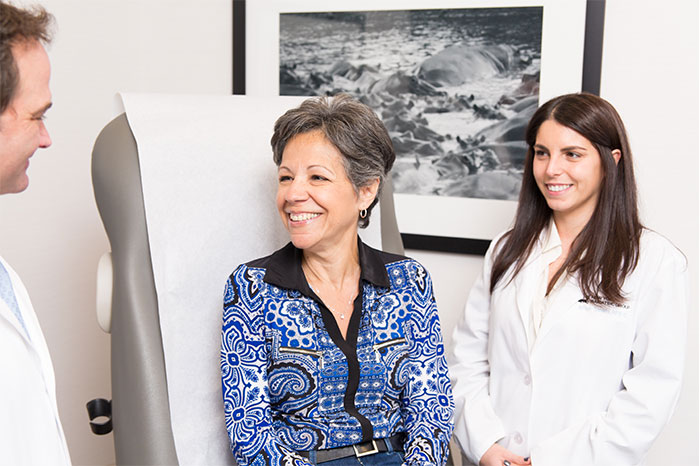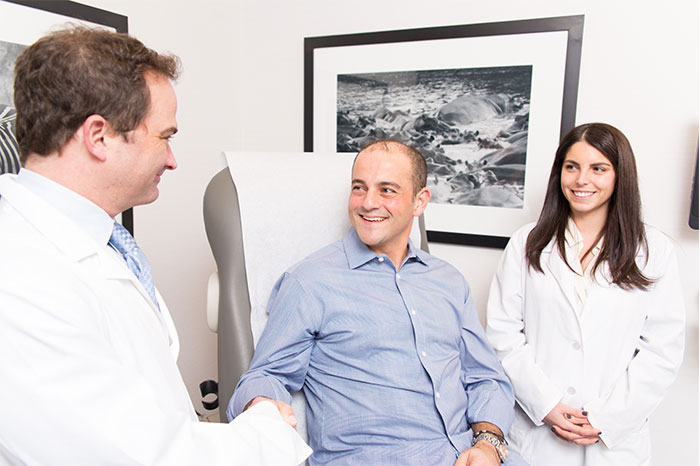What is the difference between Laparoscopy, Endoscopy, and Colonoscopy?
Endoscopy can be used as a general term for any procedure involving an endoscope. Therefore, both colonoscopy and laparoscopy procedures are actually in the field of endoscopy.
However, the upper GI endoscopy is a specific procedure, described above. Here, the endoscope is inserted through your mouth to allow for evaluation of the upper gastrointestinal track, including the small intestine (duodenum).
Colonoscopy procedures involve inserting the endoscope through the rectum to evaluate the large intestine and the colon.
Laparoscopy is a type of surgery also known as keyhole surgery. Here, small incisions are made in the abdomen, allowing for the insertion of the camera and surgical tools. Today, the leading types of bariatric surgery are performed with laparoscopic surgical techniques.
Tristate NYBG has also helped to develop the innovative SILS technique, Single Incision Laparoscopic Surgery. Available both for the lap-band and for sleeve gastrectomy, SILS offers virtually scarless results, and reduced recovery time and pain.
What should I expect before the Procedure?
Your surgeon will provide you with specifics on what to expect with your procedure, and any potential risks. However, there are also general guidelines which can be shared. For instance, you will likely need to avoid food and drink for 6-8 hours prior to your procedure. If you’re undergoing a colonoscopy, you’ll need to utilize a laxative prep and/or an enema prior to your procedure to clear out your colon.
The usage of anesthesia is required and will be administered by our board certified anesthesiologist. Endoscopy procedures are performed on an outpatient basis, which means you do not need to spend any nights in the hospital.
Risks of complication are minimal, but may include punctures, perforations, infections, and internal bleeding. Mild side effects may include bloating, gas and sore throats.
Why Should I Choose Tristate NYBG?
Tristate NYBG offers our patients a number of advantages. This begins with our highly skilled and experienced team, including five of the country’s most renowned surgeons. We also offer patients a comprehensive bariatric program which helps to produce superior long-term weight loss results.
Additionally, we are the only local bariatric clinic to have an in-house AAAASF certified endoscopy suite. What this means for you is more convenient and efficient service, as well as quick diagnosis and treatment of post-surgical issues. Further, as opposed to general gastroenterologists who may not be familiar with the anatomy and needs of bariatric patients, here, you can depend on the great experience of our bariatric team.
Visit the Tristate NYBG Endoscopy Suite
Tristate NYBG is here to help you on the road to weight loss success, and the time to take action is today. Call us at 800.633.8446 for more information on our AAAASF certified endoscopy suite, or to schedule an initial appointment for bariatric surgery in Connecticut.


